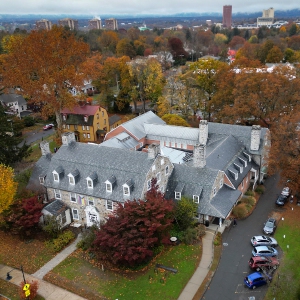Pioneer Valley farm flooding relief funds preparing to start sending out checks soon
| Published: 08-25-2023 7:18 PM |
NORTHAMPTON — As farmers continue to recover from July’s floods with the aid of community support, two government-sponsored funds are gearing up to issue their first checks.
With donations pushing the Massachusetts Farm Resiliency Fund beyond $2 million, applications are now open for the first round of funding. The first pot of money, approximately $1 million, will be spread evenly between all qualified applicants, according to information from the United Way.
The philanthropic fund, created by the United Way of Central Massachusetts and the Gov. Maura Healey’s administration, is prioritizing damages from the heavy rains in July. Applications are due by Aug. 25, and the fund aims to distribute its first checks by the end of the month.
A second round of funding will be focused on need and the parameters are being developed, the United Way said.
A number of area lawmakers are set to host a fundraiser to support the Farm Resiliency Fund on Monday, from 5:30 to 7 p.m. at Berkshire Brewing Co., 12 Railroad St., Deerfield. U.S. Rep. Jim McGovern, state Sens. Jo Comerford and Paul Mark, and state Reps. Natalie Blais, Dan Carey, Mindy Domb, Lindsay Sabadosa, Aaron Saunders and Susannah Whipps are slated to attend.
The state is also preparing to open up applications for a $20 million fund, established by the state Senate and administered by the Massachusetts Department of Agricultural Resources, to compensate farmers for crop losses.
“The goal is to open up the application process by the end of August, with applications due the end of September,” MDAR Deputy Commissioner Winton Pitcoff said.
He said the department is trying to keep the process simple, and is aiming to distribute the funds according to need.
Article continues after...
Yesterday's Most Read Articles
 Design Review Board in Amherst backs 5-story apartment project connected to old Hastings building
Design Review Board in Amherst backs 5-story apartment project connected to old Hastings building
 ‘Home away from home’: North Amherst Library officially dedicated, as anonymous donor of $1.7M revealed
‘Home away from home’: North Amherst Library officially dedicated, as anonymous donor of $1.7M revealed
 Connecticut man gets 8 years in Hadley shooting
Connecticut man gets 8 years in Hadley shooting
 Granby Bow and Gun Club says stray bullets that hit homes in Belchertown did not come from its range
Granby Bow and Gun Club says stray bullets that hit homes in Belchertown did not come from its range
 Charlene Galenski: Blake Gilmore, a strong candidate for Deerfield’s Selectboard
Charlene Galenski: Blake Gilmore, a strong candidate for Deerfield’s Selectboard
 Annette Pfannebecker: Vote yes for Shores Ness and for Deerfield
Annette Pfannebecker: Vote yes for Shores Ness and for Deerfield
“We know the losses will be greater than the resources we have,” he said.
At the same time, individual growing operations have had at least some of their losses covered by generous donors to crowdfunding sites. Some farms that suffered heavy damage, including Natural Roots in Conway and the Somali Bantu Farmers in Northampton and Hadley, surpassed their fundraising goals on the GoFundMe site, while others are still closing in on theirs.
“The generosity of our community, near and far, shows us that the work we do here is deeply valued, that we are part of something larger than ourselves and that we should, indeed, keep going,” Natural Roots’ David Fisher posted on the site. The farm said it’s keeping its fundraising page open until the picture is clearer on the cost of riverbank stabilization and the extent of government aid.
As of Thursday, Mountain View Farm in Easthampton had raised $166,671 toward its $250,000 goal. The farm, which lost most of its summer CSA produce and fall and winter crops across 45 acres, recently announced on Instagram that crews had planted its home field with crops “to coincide with our fall distribution including scallions, lettuce, bok choy, kale, cabbage, and rainbow chard!”
Grow Food Northampton has raised approximately $85,000, Executive Director Alisa Klein said, to help it recover from the damage caused when the Mill River burst its banks July 10 and flooded most of the organization’s farmland and 325-plot community garden.
“We had an incredible community outpouring of support,” Klein said. “Over 200 people volunteered within the first week.”
People have given money and time, she said, joining work parties to help the 10 farmers who lease plots from Grow Food, cleaning up debris, righting toppled sheds and putting in all kinds of dirty, physical labor. Three more work parties are scheduled for the coming days to help the organic community garden recover, remediating the soil with compost and planting cover crops.
Grow Food has been able to make payments to the farm lessees and offer funds to some of the individual gardeners who lost their entire harvest, Klein said. Everything that was flooded has been lost, she said, though state agricultural inspectors said some “lower risk” crops can be planted after 60 to 90 days.
Grow Food has also been able to purchase food from other farms for distribution to subsidized housing communities.
“This community does know how to step up,” Klein said. “People have given money and labor. It’s been very moving to host these work parties.”

 Sharing a few notes: High schoolers coaching younger string players one on one
Sharing a few notes: High schoolers coaching younger string players one on one Reyes takes helm of UMass flagship amid pro-Palestinian protests
Reyes takes helm of UMass flagship amid pro-Palestinian protests Sole over-budget bid could doom Jones Library expansion project
Sole over-budget bid could doom Jones Library expansion project Amherst poised to hire police department veteran as new chief
Amherst poised to hire police department veteran as new chief 